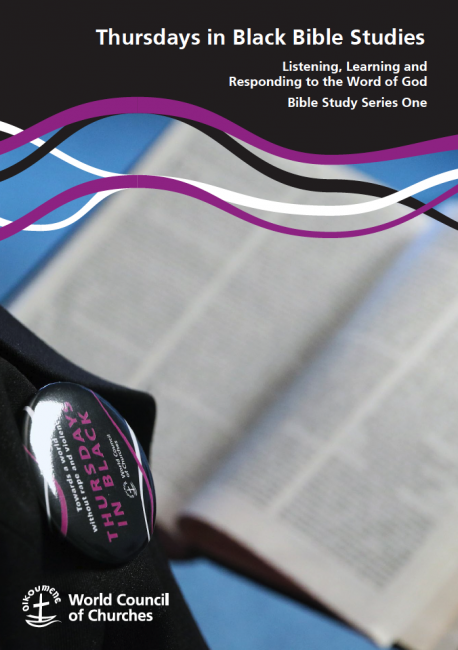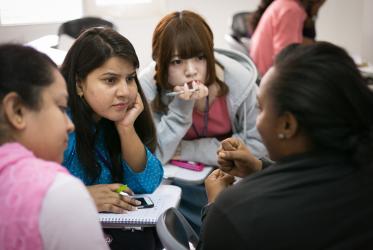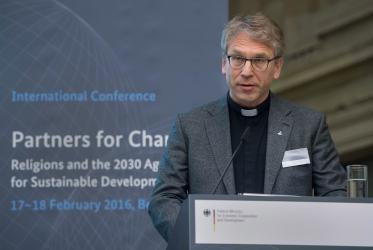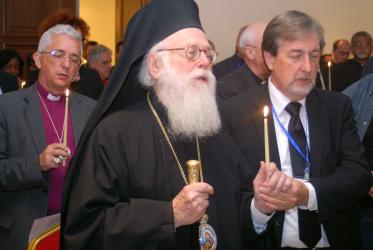Displaying 1 - 20 of 24
Listening, Learning and Responding to the Word of God
21 October 2021
Dr Abuom reflects on women of faith as healers of creation
05 October 2021
South Sudan Church leaders welcome new cabinet
15 March 2020
Peacemaking “a great and compelling life task”
09 December 2017
African women embark on pilgrimage in Burundi
29 November 2017
We are called to work on a peace built on trust, not power
04 August 2017
Women in development create space for hope in Egypt
15 June 2017
Basel University honors Ghanian Methodist theologian
09 December 2015










